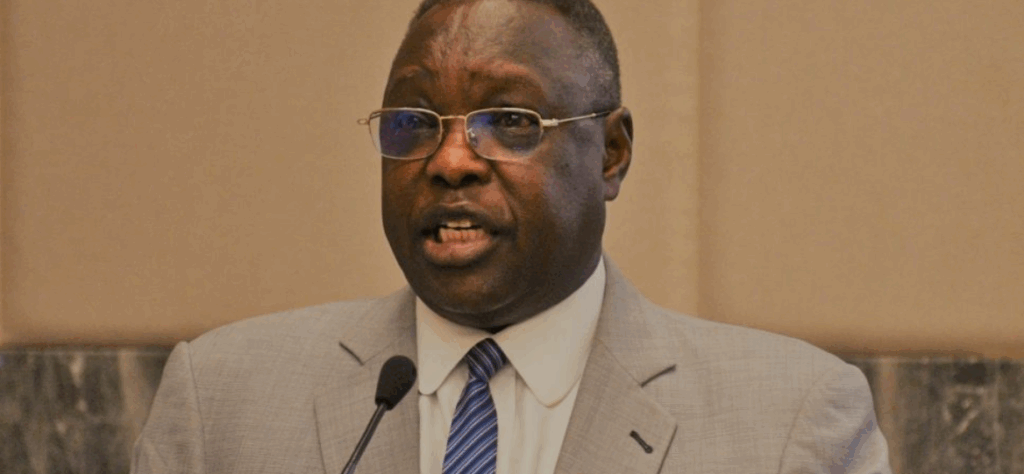South Sudan’s transitional government is facing growing skepticism from observers over its commitment to the 2018 peace agreement, as the trial of opposition leader Riek Machar threatens to derail the nation’s path to its first elections.
The government has reaffirmed its dedication to the agreement, even as suspended First Vice President Riek Machar and seven co-accused from his SPLM-IO party face charges including treason and murder.
The charges relate to their alleged roles in a deadly attack on a government military base in Nasir in March, where a general and dozens of soldiers were killed.
On Monday, Cabinet Affairs Minister Martin Elia Lomuro reiterated the unity government’s commitment to the peace deal and to holding elections in December 2026. He made the remarks while addressing diplomats at a celebration for China’s National Day in Juba.
“I must stress that the ongoing investigations involving the SPLM/IO leadership are not directly connected to the implementation of peace and the path toward democratic transition and elections in December 2026,” Lomuro said.
However, independent analysts and civil society activists challenged that narrative. They argue the legal proceedings against Machar, a principal architect of the 2018 peace deal, directly undermine its core principles of unity and inclusion.
“The trial of Riek Machar will affect peace, as he is a main signatory to the agreement, and instability deters investors,” said James Boboya, a Juba-based policy analyst. He described Lomuro’s statement as “politically motivated and disconnected from the realities on the ground.”
Speaking to Radio Tamazuj, Boboya warned that the country, which had shown tentative progress, is now regressing into a deepening humanitarian crisis marked by economic hardship and a severe liquidity crunch.
He said the visible rift between Kiir and Machar has further eroded public confidence that the peace process is on track.
“The absence of unity between the two principals has created a trust deficit,” Boboya said. “Without political stability and a credible commitment to the agreement, international partners and investors will remain reluctant to support South Sudan’s recovery.”
The peace agreement, signed in 2018, was designed to establish a power-sharing government between Kiir’s faction and opposition groups, culminating in national elections. The planned vote has been delayed twice, with elections now scheduled for December 2026.
Civil society activist Ter Manyang Gatwech echoed the concerns, cautioning that the peace process risks losing legitimacy if all signatories are not fully involved.
“You cannot claim commitment to the 2018 peace agreement while one of its key signatories is excluded,” Gatwech said. “Without full participation, the implementation remains incomplete and risks losing legitimacy.”
He urged political leaders to adhere strictly to the accord’s provisions, warning that excluding any party undermines the deal intended to guide the nation out of decades of conflict.




